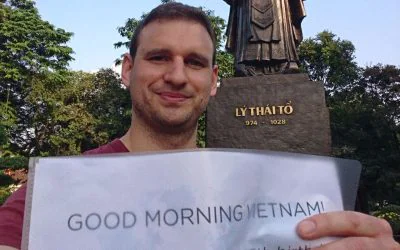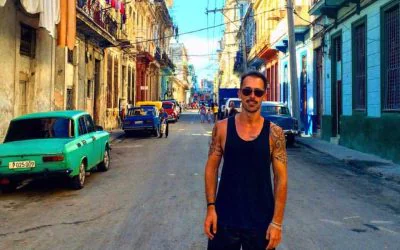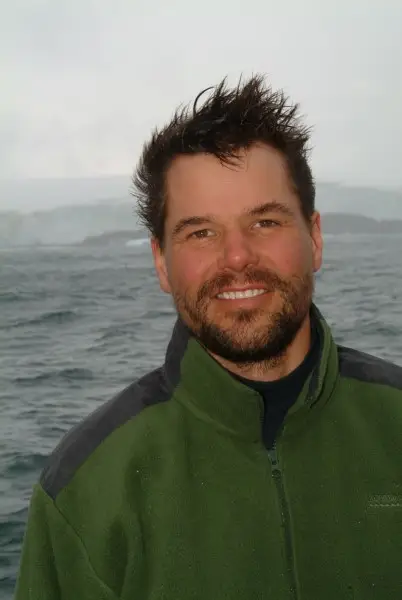
Charles at Peter I island
Charles, you once claimed the title of ‘The Most Traveled Man’ in the world. Do you believe there is one person who can claim this title or not and why?
Yes, in 2004 I did indeed claim that fanciful title, based on precedent from the Guinness Book of World Records, who had previously recognized others – most recently John Clouse in 2000 – as Most Traveled. Guinness’s old list was comprised of 265 locations, 13 of which were additive to the TCC list (which I had completed the year before). John Clouse had completed all but two Guinness locations at the time, and when I landed on Bouvet, I had completed all but one. So I thought that approaching Guinness was reasonable. “Minus-1” is still my current status on the Guinness list all these years later, with the one remaining being the Paracel (Xisha) Islands.
Over time, I have come to believe ever more strongly that there is no single person who can claim the title of Most Traveled Person. There is a pantheon of travelers, both living and dead, many of whom are represented on MTP and NomadMania, who have accomplished extraordinary track records, each according to his own resources and motivations. Lists like ours do provide an objective backdrop for one of the most important aspects of travel – coverage – but these lists are not the sole arbiters of travel achievement. I think the most valuable purpose they serve is to provide ongoing motivation and structure to travelers of all levels.
I’ve also come to believe that a major benefit of these lists is to inspire debate, and that a level of ongoing debate and ambiguity is indeed healthy. This is an evolution in my thinking, where the old Charles would have wanted everything to be neat, tidy, cut and dried. Just as ongoing construction in a cityscape may seem chaotic and disruptive, but really represents a healthy economy and investment, ongoing debate on the topic of Most Traveled indicates interest and passion from the larger community. Closing the books and trying to settle the issue once and for all is to close the door on growth, progress and innovation.
One also must not forget that there is a time component to informed travel. Multiple visits and recency of visit both inform more than a single visit long ago. I have had the good fortune over the last several years to accompany a younger companion on many trips to more “conventional” destinations, as she begins to build her worldview. Not only are these repeat destinations delightful, being seen through fresh eyes, but every destination has changed over the course of 10 or 15 years – sometimes substantially – and in fact can reasonably be considered as an entirely new place. A single one-time list does not capture any of this time component. Difficult as it may be to admit for many travelers, the “What have you done for me lately?” factor is a real thing.
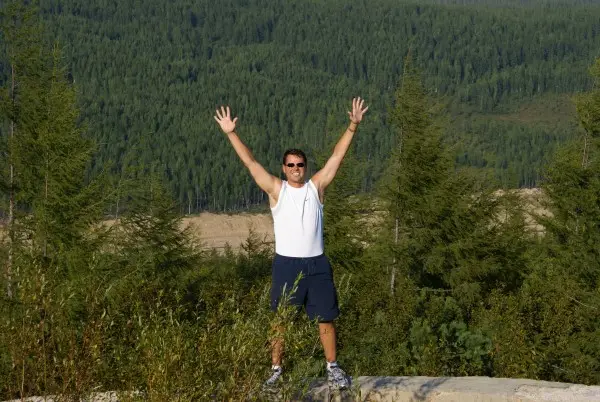
Sakha (Yakutia), Siberia
How has travel impacted your life, positively and negatively?
The positives are almost too numerous to count.Having an informed worldview is perhaps the greatest asset anyone can cultivate outside of their own family, and the more one sees of the world, the more complete that worldview can become.Of course, travel also helps build the sheer number of one’s worldwide relationships.It’s truly priceless to be able to reach out to someone across the world at a moment’s notice and ask for a favor, a current insight, or just to say ‘Hi!’
Back at home, another benefit is what I call the ‘taxicab/Uber factor,’ whereby successfully guessing the nationality of one’s driver (or any stranger, for that matter) can break the ice and lead to profound introductory conversations. Much more satisfying than small talk; I’ve gotten more than a few free rides that way!Travel and especially planning travel is also the best way to satisfy my geography and transport geek sides.
I really can’t point to anything negative about travel.Sure, I’ve had bad experiences which in the moment were challenging.But I’m still here, and those make the best stories later on.I could probably be a lot wealthier if I had focused on other things for a time.I could be closer to my kids.But those have been my own choices, and certainly ‘travel’ is not to blame.
In sum, travel makes me a better and happier person.It is the ultimate educator.And most importantly, it gives motivation to get out of bed in the morning every day and accomplish something.The world– as evidenced by our lists – is big enough and changing so fast that it can never be completely visited.There is always more to do.There is no ‘done.’ And that’s a beautiful thing.
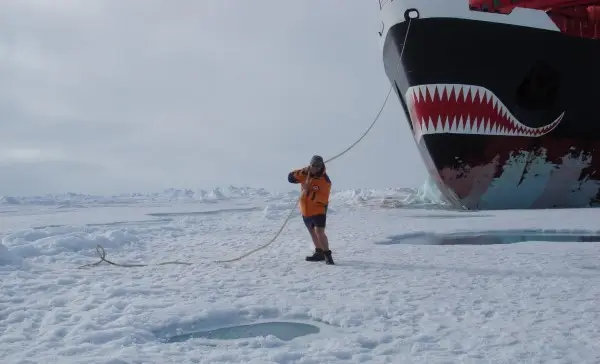
North Pole
Of the places you visited, which ones have had the most impact and why?
Based on a US upbringing, my worldview was Euro-centric until 2000, when I first had means to travel widely and independently from work. In fact, the genesis of my shift into serious traveling was to spend a year abroad studying French, German, and Italian in order to become ‘fully cultured’ (I already had some Spanish). This was the logical next step to a 3-month Eurorail odyssey I had previously devoured at age 22. In retrospect, this plan was all well and good, but very Euro-centric!
In November 2000, Germany was becoming quite cold and rainy, and in response, I traveled to South Africa for 3 weeks. The experience blew my mind. I vividly recall sitting in my sunny Cape Town hotel room, on the phone with a local travel agent, while staring at a map of Southern Africa. Suddenly, I realized that Malawi, Mozambique, Botswana, Namibia, Swaziland and Lesotho were all right there, beckoning. Words from a geography quiz were becoming real, accessible, and tangible parts of a potential future I had never before considered. The beauty and climate of South Africa (and its contrast to chilly Germany) was obliterating my geographic center of gravity, and, by extension, opening the entire world to me. That day was a turning point in my life.
Of course, many other individual visits carry their own special meanings to me, such as fulfillment of a longtime goal, a surprise (either positive or negative) versus expectations, or a beautiful and unforgettable moment in time. But those each deserve their own stories at leisure. I look forward to sharing more with both of our communities.
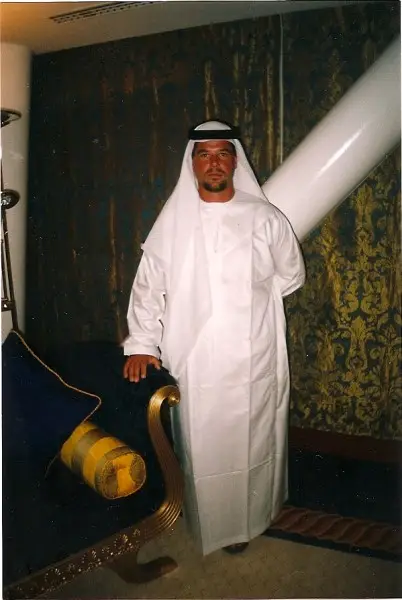
Dubai
You launched MTP in 2005, establishing it as a leading club of its type. What did you hope to achieve with this? Have your expectations been achieved?
In 2005, it was clear that Guinness was incapable of taking a leadership role in this area, and that TCC wasn’t going to change any time soon, so the main goal was to fill a market need. I had spent thousands of hours painstakingly researching how to get to Guinness and DXCC destinations, and found very few resources online, and very few TCC members even aware of the parts of the world beyond the TCC list. Also, instead of concrete travel records, I had mostly been finding rumors and hearsay about top travelers. No one really knew who had been where, unless they had traveled together. My pursuit of Guinness and DXCC had truly opened my mind that there was more out there worth exploring than just the TCC list, so I aimed to expand people’s horizons as well, and in a communal way with group participation.
As a software person, I thought “can’t we just build a database for this?” TCC at the time was largely a paper-based organization, so my idea was that building a community around an accurate traveler database would solve all of these issues, and be a real benefit to others who aspired to ‘go everywhere,’ so they wouldn’t have to go through the pioneering which I had endured.
As for success, yes, I think that MTP has changed many people’s lives over time. Many of my goals for the community remain unfulfilled at present, but I think that the best years are yet to come. As with travel, there is always more to do…
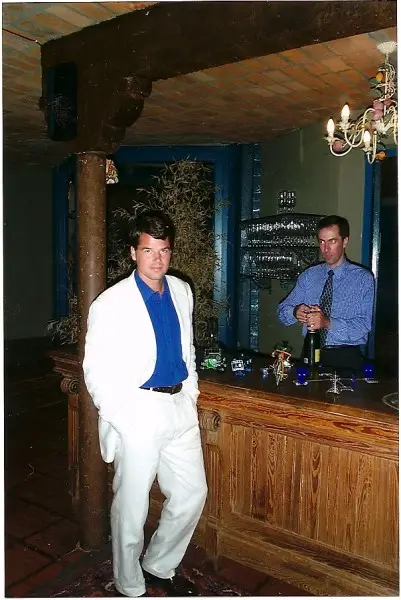
Uruguay
Explain to us the pillars on which the MTP list of regions lies.
MTP’s Master List began as a reconciliation of the primary lists which existed in 2005: TCC; DXCC; Guinness; and the list John Todd put forward in his 1994 book “Race for the World.” That brought us to 573 items. Then, in an attempt to detach the list from any single individual, and therefore remove bias, I opened the list up to voting among the membership, who mainly decided to divide large countries into smaller segments.
In 2010, I was burdened with too many other obligations, and didn’t have time to properly administer voting, so froze it with the list at 873. Since then, I’ve updated only when one of the other base lists has changed (e.g. Isla Margarita being added to TCC, or Malyj Vysotskij falling off of DXCC). I can reinstate voting anytime, and plan to do so at an appropriate point in the future.

Clipperton island
You are in the process of updating MTP with a new design. What are your hopes for this new version of the website?
The current version of MTP was built piecemeal over a period of about 6 years, starting 13 years ago. There was nothing like it at the time, and so I would bolt on another section or feature as the ideas came to me. Over time, like any extensive construction which did not start from a comprehensive design, usability suffered. New technologies now make content-sharing ever easier, and so I hope to leverage those to improve usability and increase participation and engagement, so that the site can better fulfill its ongoing mission of community. Better design and technology should be able to engender more passion and participation.
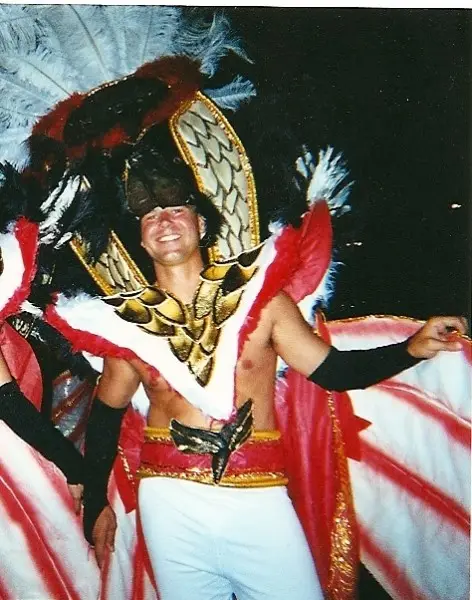
Carnival in Rio
NomadMania will now be listing people’s MTP scores as well. How does this cooperation make you feel and how does it link to your strategic plans for the future of MTP? Do you feel there is room in the ‘market’ for both NomadMania and MTP’s lists?
I feel good about working together. Obviously, I’m not dogmatic about any one list, or I would never have created a voting system, nor started from other lists to begin with! I admire your dedication to the craft, and think that multiple perspectives provide a benefit to the community.
Filling out my NM list for the first time was eye-opening. It felt like every country had been split into many parts, and that any past attempts to hop blithely from capital to capital and calling it a day without venturing out to “deepest, darkest” were now being soundly punished! That being said, some of the most involved, challenging, and ultimately satisfying journeys I’ve ever undertaken were not reflected in NM, to places such as Peter I, Baker and Howland Islands, Banaba or Palmyra. Wildly disparate places like Wake and Midway were lumped together. Other profoundly difficult locations like Marcus Island, the Ballenys, or Johnston Atoll were not present. So these lists at present definitely reflect different points of view on the composition of the land area of the Earth.
After considering both, I think that the proper response (which I immediately felt in my bones) is to want to do both. For NM, I came in just under 1000 regions, and immediately got excited thinking about what I could do to make it over that threshold. If only the NM list had been around in 2005, much of my travel planning would have been very different!
You are from the US. Do you feel this is an advantage or a disadvantage when travelling and why?
During my busiest travel years, George W. Bush was President of the US. In fact, the Bush-Gore election night was the night I flew from Munich to South Africa on the November 2000 trip which changed my life forever. I vividly remember waking up to the Lufthansa pilot proclaiming over the intercom that “GAY-org Bush hat gewonnt.” Of course, even after returning from that 3-week trip, the election still hadn’t been finally settled, but my disappointment certainly had blossomed – furthering my desire not to go home.
During those years, I spent far too much time explaining and apologizing for US government actions which I didn’t support. I saw murals and billboards across the world depicting our President as a monkey, or worse, and my nationality sometimes became a distraction to furthering my travel goals. Most people could see the difference between one individual and his country’s politics, but not all. Today, the political situation is far worse, with our current Idiot-in-Chief trampling on centuries of informed US policy.
That being said, in the grand scheme of things, having a US passport does open more doors than nearly any other, visa-wise, and from 2000-2008, visa management became nearly a full-time job when traveling seriously. Also, as an American, access to USD is easier, and having English as a first language is now more beneficial than ever (as long as you are willing to learn other languages too).
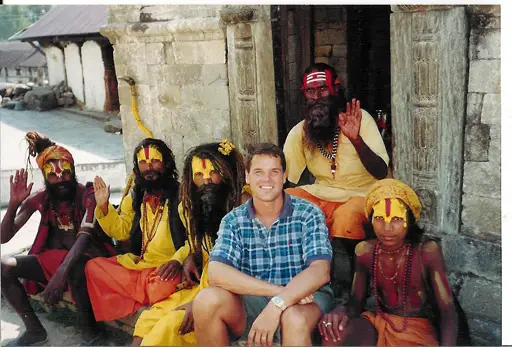
Kathmandu
You have been travelling less than before. What is still on your ‘bucket list’ of places you want to discover?
Funny to talk about a ‘bucket list’ with you, when obviously, any location where I have not yet been on MTP is a priority (and now I have more to do on NM as well).
Some fascinating countries like Tunisia, Iran, and Bulgaria, where shamefully I have only visited the capitals, are nudged right up there also as a higher priority. The Paracels are still out there from the original Guinness list, and Isla Margarita is now a gap for me on TCC. Kurdistan and Puntland glare out from the UN+ list. And I now have a well-connected Pakistani friend who has promised to fully take care of me across my remaining provinces, once I get around to obtaining that visa.
The 3 remaining Pitcairn Islands persist following the latest breakdown of the legendarily horrible vessel ‘Bounty Bay,’ which brought me on my 2nd voyage to Pitcairn, but failed to deliver any of its other scheduled landings.
As I mentioned before, returning to more mainstream places over time has also been immensely satisfying, so there’s that as well.
I could go on and on, but I think you get the picture. The list is long.
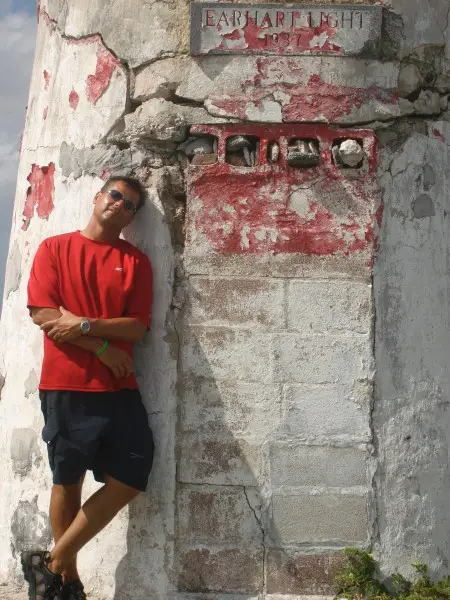
Howland Island
Finally, our signature question – if you could invite four people to dinner from any period in history, who would you invite and why?
I had such a good time one evening with John Clouse, that I think he would make an excellent invitee. And for the other three, let’s go with James Cook, Alexander the Great, and Gerardus Mercator. That way, we can have a rich conversation about how man’s understanding of world geography has evolved over time.
And if that doesn’t work out, then at the next dinner, I’ll invite Cleopatra, Helen of Troy, Raquel Welch (from the 1970’s), and a current female celebrity to be named closer to dinnertime. Do they all have to disappear right after we finish dessert?
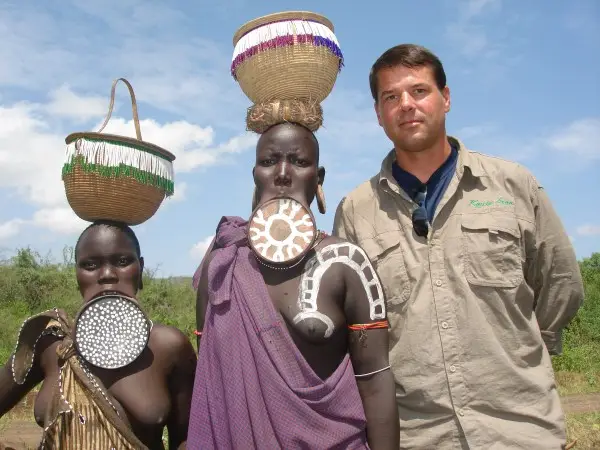
With the Mursi tribe in Ethiopia
The photos in this interview are from Charles’ personal collection and we thank him for sharing them with us at NomadMania!
